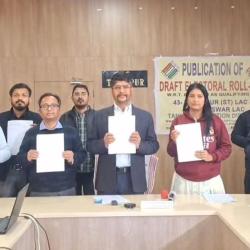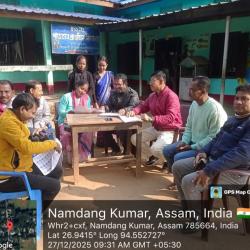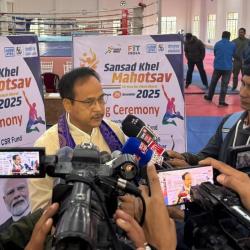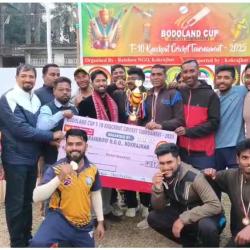Long back renowned author Douglas Kellner emphasised on the term „media spectacle‟ (Book: Media Spectacle, 2003) by which he meant „media constructs‟ that are made out of the ordinary and habitual daily routine and very often imbibed in dramatisation and sensitisation of events. This notion of „media spectacle‟ often leads to sidelining of major media events and entails an act of giving in to the commercialised aspects of modern media which seems to hanker only after TRPs. The various instances of „media spectacle‟ Kellner cites are Clinton‟s impeachment scandal in the late 1990s, the death of Princess Diana, the 9/11 terror attacks and so on.
This concept is very much prevalent in India also and has got reflection in various cases ranging from the Jessica Lall Murder case, Mumbai Terror Attack, Aarushi Talwar Murder Case and the very recent Sheena Bora murder case. This doesn‟t mean that media through the portrayal of these cases only try to gain more TRP. One should in this context take into account the positive role played by media in bringing the accused to book specially in the Jessica Lall, Priyadarshini Mattoo and Nitish Katara murder cases. These incidents are very important as the accused in these cases belong to very influential family and media intervened in the scenario after the accused was acquitted by the court. Media‟s intervention in the Anna Hazare agitation was also commendable. However, in many instances it seemed media took its task of investigative journalism too seriously, often surpasses the police and very often invade into people‟s right to privacy. This tendency can be seen in the coverage of Sheena Bora Murder case also.
This piece doesn‟t try to deal with the detailed analysis of the case but to portray the media hype behind it. Infact, in the course of mere one week this particular incident has witnessed many developments and media has designed many „theories‟ (the various motives cited are those relating to property or Sheena having an affair with her step-brother) behind the motive of Sheena‟s murder. They have also shown in details their family lineage (with more focus on the number of marriages people connected with this case had) and what Indrani Mukherjee is eating in the course of the trial! It is still doubtful as to how important are these instances in solving the murder mystery. Now the headline is that infact that Sheena Bora might be alive! A girl who many people didn‟t even know exist has grabbed headlines in a matter of one week. This might also be because of her linkages to renowned personalities. If this is indeed a case of honour killing then why has this case got unprecedented importance on the basis of certain speculations whereas more serious and confirmed cases of honour killings often get sidelined by the media.
The growing importance of media can‟t be denied and it can undoubtedly be regarded as a forum where common people get an opportunity to raise their voice. But, the arena of media as has been emphasized has changed in a drastic manner over the times which is now characterised by increasing corporatization. Journalism or media ethics is based on three tenets - accuracy, impartiality and responsibility. Democracy depends on citizens having reliable, accurate facts put in a meaningful context. This “journalistic truth” is a process that begins with the professional discipline of assembling and verifying facts. Then journalists try to convey a fair and reliable account of their meaning, valid for now, subject to further investigation. Journalists should be as transparent as possible about sources and methods so audiences can make their own assessment of the information. Again, independence is an underlying requirement of journalism, a cornerstone of its reliability. Independence of spirit and mind, rather than neutrality, is the principle journalists must keep in focus. With the increasing importance of media in the present time, they are also supposed to act with responsibility while covering news and maintain professionalism and be objective in their coverage – they should report rather than supporting, more than views people seek news from them.
From the above discussion it can be said that, media in modern times despite its utility is gradually losing its credibility. In recent times, various cases are also made against the media persons and here reference should be made to Radia Tape Controversy and the case of sexual molestation against Tarun Tejpal of Tehelka. But, importance of media in a democratic country still holds good. Also, media in developing countries like India plays a larger role as compared to other European countries. Besides the task of mobilizing and informing people it also acts as a forum of political education. Hence, the existing media houses should be accountable to public interest and further reforms should be initiated in this arena. The common people should also be responsible while dealing with social media and also with other forms of media they should always have a critical insight and shouldn‟t always go by what the media has to say. Thereby, the onus is on both the government and the common people and this can really help Indian democracy to flourish.
(The author is a doctoral candidate in the Centre for Political Studies, JNU)
- 9494 reads










Add new comment